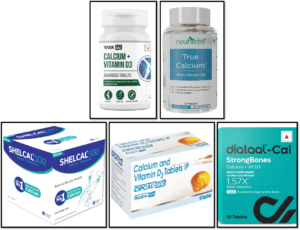
Ensuring better healthcare facilities for the people of the country is the responsibility of the state, wherein drugs play a pivotal role. And to regulate the drugs to improve the quality of medical care, better management and cost-effective use, the Ministry of Health and Family Welfare has put in place the National List of Essential Medicines (NLEM). The list of essential medicines is intended to have a positive impact on the availability and rational use of medicines. In India, it was framed on the lines of the Essential Medicines List (EML) released by the WHO.
In line with other steps that lead to the good health of the people, recently, the government has dropped 26 drugs and added 34 to the National List of Essential Medicines (NLEM). The list now contains 384 approved medicines. However, the 26 drugs that have been dropped from the list include Ranitidine, Sucralfate, white petrolatum, Atenolol and Methyldopa. The reasons behind eliminating 26 drugs from the list are not side-effects, but others like the parameters of cost-effectiveness and availability of better drugs, etc., as a government official has revealed so.
The government official further adds, “Molecules like atenolol erythromycin and ranitidine and many more which are out of NLEM have been safe and efficacious for more than four decades. There are no side effects or cancer concerns with these molecules as recently stated in international studies as well. They are authentic, safe and manufactured by large and small pharmaceuticals manufacturers.” [1]
According to World Health Organisation (WHO), essential medicines are those that satisfy the priority healthcare needs of a population. And these medicines are intended to be available in functioning health systems at all times, in appropriate dosage forms, of assured quality and at prices individuals and health systems can afford.
Clearing the airs about the side-effects of the dropped drugs from NELM, Dr Y K Gupta – Professor, Vice Chairman, Standing National Committee on Medicines & Health Care Products, elaborated, “There has been some concern raised by FDA which are still not established about the possibility of some cancerous substances. One must be clear about it this is yet not very established and therefore there is no cause for concern or panic at all.” [1]
Dr Gupta further added, “Since we have better options available with us, so, we consider removing this but removing because it can cause cancer is an incorrect statement. [1]
National List of Essential Medicines (NLEM) aims to improve the quality of medical care, better management of medicines and cost-effective use of health care resources. This is especially important for a resource-limited country like India. Moreover, Indian doctors recommend the drug for a specified duration and only under a doctor’s prescription.
Throwing light on the correct ways of using medicines, Dr S Chatterjee, Internal Medicine Physician, Indraprastha Apollo Hospitals emphasised, “People keep on taking these drugs for long duration that can give some kind of side effects. I must say that these drugs should be used for a specified duration and only under prescription and treating physician or gastroenterologist.” [1]








